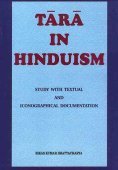Paramahamsa, Paramahaṃsa, Paramahansa, Parama-hamsa: 17 definitions
Introduction:
Paramahamsa means something in Hinduism, Sanskrit, the history of ancient India, Marathi. If you want to know the exact meaning, history, etymology or English translation of this term then check out the descriptions on this page. Add your comment or reference to a book if you want to contribute to this summary article.
In Hinduism
Shaivism (Shaiva philosophy)
Source: Google Books: Manthanabhairavatantram (shaivism)Paramahaṃsa (परमहंस) refers to the “Supreme Self”, according to the Mahānayaprakāśa by Arṇasiṃha (Cf. verse 182-197).—Accordingly, “The indestructible Skyfarer is the one whose body is the pulsation (of consciousness and vitality) which is the Supreme Self (paramahaṃsa). His lord who is this (absolute) free of contact (with the phenomenal world) is said to be Khagendra”.
Source: DSpace at Pondicherry: Siddha Cult in Tamilnadu (shaivism)Paramahaṃsa (परमहंस).—According to the ancient tradition, ascetics who strive to gain liberation are classified into four classes. They are kuṭīcakas, bahūdakas, haṃsas and paramahaṃsas. Of these, the last represents an extremely ancient ascetic order. The paramahaṃsas live under trees, in grave yards or in deserted houses. They go naked or half-clad. They are indifferent to everything in the sense that they are disinterested, free souls. They look at a clod of mud and gold with the same dispassion. They accept food from people of any caste. They practice a kind of yogic tāntrism.

Shaiva (शैव, śaiva) or Shaivism (śaivism) represents a tradition of Hinduism worshiping Shiva as the supreme being. Closely related to Shaktism, Shaiva literature includes a range of scriptures, including Tantras, while the root of this tradition may be traced back to the ancient Vedas.
Vaishnavism (Vaishava dharma)
Source: Pure Bhakti: Bhajana-rahasya - 2nd EditionParamahaṃsa (परमहंस) refers to:—A topmost, God-realised, ‘swan-like’ devotee of Śrī Bhagavān;the fourth and highest stage of sannyāsa. (cf. Glossary page from Bhajana-Rahasya).
Source: Pure Bhakti: Brhad BhagavatamrtamParamahaṃsa (परमहंस) refers to:—An exalted soul. (cf. Glossary page from Śrī Bṛhad-bhāgavatāmṛta).

Vaishnava (वैष्णव, vaiṣṇava) or vaishnavism (vaiṣṇavism) represents a tradition of Hinduism worshipping Vishnu as the supreme Lord. Similar to the Shaktism and Shaivism traditions, Vaishnavism also developed as an individual movement, famous for its exposition of the dashavatara (‘ten avatars of Vishnu’).
Purana and Itihasa (epic history)
Source: archive.org: Shiva Purana - English Translation1) Paramahaṃsa (परमहंस) refers to “great Yogins”, according to the Śivapurāṇa 2.3.25 (“The seven celestial sages test Pārvatī”).—Accordingly, as Pārvatī said to the seven Sages: “[...] Śiva is Brahman, unchanging and without aberration. He assumes shapes and forms for the welfare of his devotees. He does not make a show of worldly lordship. Therefore he assumes the attitude and behaviour of great Yogins [i.e., paramahaṃsa]. Śiva is a supreme bliss personified and an Avadhūta in form. [...]”.
2) Paramahaṃsa (परमहंस) refers to the “great Yogin and saint (who expounds the great wisdom)”, and is used to describe Viṣṇu, according to the Śivapurāṇa 2.5.16 (“The battle of the gods”).—Accordingly, as Brahmā and the Gods eulogized Viṣṇu: “[...] Obeisance to you of the form of Kapila of great soul and who expounded the doctrines of Sāṃkhya and Yoga to Devahūtī; O lord, obeisance to you the preceptor of Sāṃkhya. Obeisance to great Yogin and saint (paramahaṃsa) who expounds the great wisdom. Obeisance to the creator of the form of knowledge whereby the soul is delighted. [...]”.

The Purana (पुराण, purāṇas) refers to Sanskrit literature preserving ancient India’s vast cultural history, including historical legends, religious ceremonies, various arts and sciences. The eighteen mahapuranas total over 400,000 shlokas (metrical couplets) and date to at least several centuries BCE.
India history and geography
Source: Wikipedia: India HistoryParamahansa Yogananda (1893-1952) was an Indian Hindu monk, Yogi and Guru who introduced millions to the teachings of meditation and Kriya Yoga. [...] A chief disciple of the Bengali yoga guru Swami Sri Yukteswar Giri, he was sent by his lineage to spread the teachings of yoga to the West, to prove the unity between Eastern and Western religions and to preach a balance between Western material growth and Indian spirituality.
Paramahamsa (Paramahansa) Yogananda (“Mukunda Lal Ghosh”) was born in Gorakhpur, Uttar Pradesh, India, to a Hindu Bengali Kayastha family. [...] He began praying for guidance; in 1910, his seeking after various teachers mostly ended when, at the age of 17, he met his guru, Swami Sri Yukteswar Giri. [...] He would go on to train under Sri Yukteswar as his disciple for the next ten years (1910–1920), at his hermitages in Serampore and Puri. [...] In 1917, Yogananda founded a school for boys in Dihika, West Bengal, that combined modern educational techniques with yoga training and spiritual ideals.
Source: Cologne Digital Sanskrit Dictionaries: Indian Epigraphical GlossaryParamahaṃsa.—(EI 5; BL), an ascetic; epithet of an ascetic. See Haṃsa. Note: paramahaṃsa is defined in the “Indian epigraphical glossary” as it can be found on ancient inscriptions commonly written in Sanskrit, Prakrit or Dravidian languages.

The history of India traces the identification of countries, villages, towns and other regions of India, as well as mythology, zoology, royal dynasties, rulers, tribes, local festivities and traditions and regional languages. Ancient India enjoyed religious freedom and encourages the path of Dharma, a concept common to Buddhism, Hinduism, and Jainism.
Languages of India and abroad
Marathi-English dictionary
Source: DDSA: The Molesworth Marathi and English Dictionaryparamahaṃsa (परमहंस).—m S An order, or an individual of it, of devotees; an ascetic who has subdued all his senses by abstract meditation. 2 A name of God.
Source: DDSA: The Aryabhusan school dictionary, Marathi-Englishparamahaṃsa (परमहंस).—m An order, or an individual of it, of devotees; an ascetic who has subdued all his senses by abstract meditation.
Marathi is an Indo-European language having over 70 million native speakers people in (predominantly) Maharashtra India. Marathi, like many other Indo-Aryan languages, evolved from early forms of Prakrit, which itself is a subset of Sanskrit, one of the most ancient languages of the world.
Sanskrit dictionary
Source: DDSA: The practical Sanskrit-English dictionaryParamahaṃsa (परमहंस).—an ascetic of the highest order, one who has controlled and subdued all his senses by abstract meditation; cf. कुटीचक (kuṭīcaka); कुटीचको बहूदकः हंसश्चैव तृतीयकः । चतुर्थः परमो हंसो यो यः पश्चात् स उत्तमः (kuṭīcako bahūdakaḥ haṃsaścaiva tṛtīyakaḥ | caturthaḥ paramo haṃso yo yaḥ paścāt sa uttamaḥ) || Hārītāsmṛti. °परिव्राजकाचार्यः (parivrājakācāryaḥ) Name of Śaṅkarāchārya.
Derivable forms: paramahaṃsaḥ (परमहंसः).
Paramahaṃsa is a Sanskrit compound consisting of the terms parama and haṃsa (हंस).
Source: Cologne Digital Sanskrit Dictionaries: Shabda-Sagara Sanskrit-English DictionaryParamahaṃsa (परमहंस).—m.
(-saḥ) An ascetic, a religious man who has subdued all his senses by abstract meditation. E. parama best or first, haṃsa devotee.
Source: Cologne Digital Sanskrit Dictionaries: Benfey Sanskrit-English DictionaryParamahaṃsa (परमहंस).—m. an ascetic who has subdued all his senses, Mahābhārata 13, 6478 (parama). Rājahaṃsa, i. e.
Paramahaṃsa is a Sanskrit compound consisting of the terms parama and haṃsa (हंस).
Source: Cologne Digital Sanskrit Dictionaries: Monier-Williams Sanskrit-English Dictionary1) Paramahaṃsa (परमहंस):—[=parama-haṃsa] [from parama > para] m. an ascetic of the highest order, a religious man who has subdued all his senses by abstract meditation, [Mahābhārata; Purāṇa] etc. (cf. [Religious Thought and Life in India 87])
2) Pāramahaṃsa (पारमहंस):—[=pārama-haṃsa] [from pārama] mf(ī)n. relating to Parama-haṃsa (sub voce) idem, [ib.]
Source: Cologne Digital Sanskrit Dictionaries: Yates Sanskrit-English DictionaryParamahaṃsa (परमहंस):—[parama-haṃsa] (saḥ) 1. m. An ascetic.
[Sanskrit to German]
Sanskrit, also spelled संस्कृतम् (saṃskṛtam), is an ancient language of India commonly seen as the grandmother of the Indo-European language family (even English!). Closely allied with Prakrit and Pali, Sanskrit is more exhaustive in both grammar and terms and has the most extensive collection of literature in the world, greatly surpassing its sister-languages Greek and Latin.
Kannada-English dictionary
Source: Alar: Kannada-English corpusParamahaṃsa (ಪರಮಹಂಸ):—
1) [noun] = ಪರಮಬ್ರಹ್ಮ [paramabrahma].
2) [noun] a sanyāsi, the Hindu ascetic, of the highest order.
Kannada is a Dravidian language (as opposed to the Indo-European language family) mainly spoken in the southwestern region of India.
See also (Relevant definitions)
Partial matches: Hamsa, Parama.
Starts with: Paramahamsadharmanirupana, Paramahamsakavaca, Paramahamsamantravidhi, Paramahamsan, Paramahamsanirnaya, Paramahamsapaddhati, Paramahamsapancanga, Paramahamsaparivrajakacarya, Paramahamsaparivrajakadharmasamgraha, Paramahamsaparivrajakopanishad, Paramahamsapatala, Paramahamsapriya, Paramahamsasahasranaman, Paramahamsasamhita, Paramahamsasamnyasavidhi, Paramahamsastavaraja, Paramahamsastotra, Paramahamsopanishad.
Ends with: Anandabodha paramahamsa, Anandabodhaparamahamsa, Brahmananda paramahamsa, Brahmanandaparamahamsa, Dvadashaparamahamsa, Purnananda paramahamsa, Ramacandra paramahamsa.
Full-text (+33): Paramahamsya, Paramahamsanirnaya, Paramahamsapatala, Paramahamsasamhita, Paramahamsastotra, Paramahamsaparivrajakopanishad, Paramahamsapriya, Paramahamsaparivrajakacarya, Paramahamsastavaraja, Paramahamsakavaca, Paramahamsapancanga, Paramahamsapaddhati, Paramahamsasahasranaman, Paramahamsadharmanirupana, Paramahamsaparivrajakadharmasamgraha, Hamsa, Raivataka, Rajayoga, Paramahamsopanishad, Paramahamsopasanaprakara.
Relevant text
Search found 59 books and stories containing Paramahamsa, Paramahaṃsa, Paramahansa, Parama-hamsa, Parama-haṃsa, Pāramahaṃsa, Pārama-haṃsa, Parama-hansa; (plurals include: Paramahamsas, Paramahaṃsas, Paramahansas, hamsas, haṃsas, Pāramahaṃsas, hansas). You can also click to the full overview containing English textual excerpts. Below are direct links for the most relevant articles:
Bhakti-rasamrta-sindhu (by Śrīla Rūpa Gosvāmī)
Verse 2.1.208 < [Part 1 - Ecstatic Excitants (vibhāva)]
Verse 2.1.288 < [Part 1 - Ecstatic Excitants (vibhāva)]
Verse 3.1.8 < [Part 1 - Neutral Love of God (śānta-rasa)]
Garga Samhita (English) (by Danavir Goswami)
Verse 4.4.9 < [Chapter 4 - The Story of the Kauśalā Women]
Verse 4.1.29 < [Chapter 1 - The Story of the Personified Vedas]
Verse 3.2.15 < [Chapter 2 - The Great Festival of Śrī Girirāja]
Chaitanya Bhagavata (by Bhumipati Dāsa)
Verse 3.2.208 < [Chapter 2 - Description of the Lord’s Travel Through Bhuvaneśvara and Other Placesto Jagannātha Purī]
Verse 2.26.162 < [Chapter 26 - Descriptions of the Mercy Bestowed on Śuklāmbara and Vijay and the Lord’s Desire to Accept Sannyāsa]
Verse 3.2.224 < [Chapter 2 - Description of the Lord’s Travel Through Bhuvaneśvara and Other Placesto Jagannātha Purī]
Prasthanatrayi Swaminarayan Bhashyam (Study) (by Sadhu Gyanananddas)
4.6. Sādhus of Svāminārāyaṇa < [Chapter 1 - Introduction]
4.3. Unique Prayer < [Chapter 1 - Introduction]
Metaphysics and Svāminārāyaṇa’s perspective < [Chapter 3 - Analysis on the Basis of Metaphysics]
Thirty minor Upanishads (by K. Narayanasvami Aiyar)
Bhikshuka Upanishad of Shukla-Yajurveda
Muktika Upanishad of Shukla-Yajurveda, Chapter I
Shri Gaudiya Kanthahara (by Srila Bhaktisiddhanta Sarasvati)
Related products


